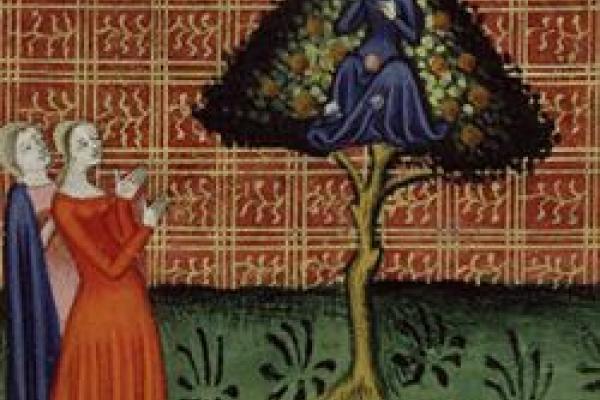
The Musicology Lecture Series presents guest speaker Anna Zayaruznaya, Yale University, "Music Against Reason: Philippe de Vitry's Exceptional Notation."
Musicology lectures are free and open to the public. All lectures are held Mondays at 4:30 p.m. in the Music/Dance Library (2nd floor, room 205) in the 18th Avenue Library at 175 West 18th Ave., unless otherwise noted.
The upper-voice texts of the motet Tuba/In arboris pit Faith and Reason against each other, arguing that only the former will lead to eternal life or to any real kind of understanding. That an “isorhythmic” motet—that most rational of constructions—should present an argument about the fallibility of ratio may come as something of a surprise, as may the fact that the well-educated composer Philippe de Vitry (1291–1361) would declare Reason (and Music) to be powerless. This paper situates Vitry’s texts within the relevant contemporary strands of thought about Reason and Faith and explores the contradictions at the heart of the motet’s musical construction. This interpretation of the motet highlights some of the tensions between practice and theory that emerged with the early fourteenth-century revolution in musical notation.
